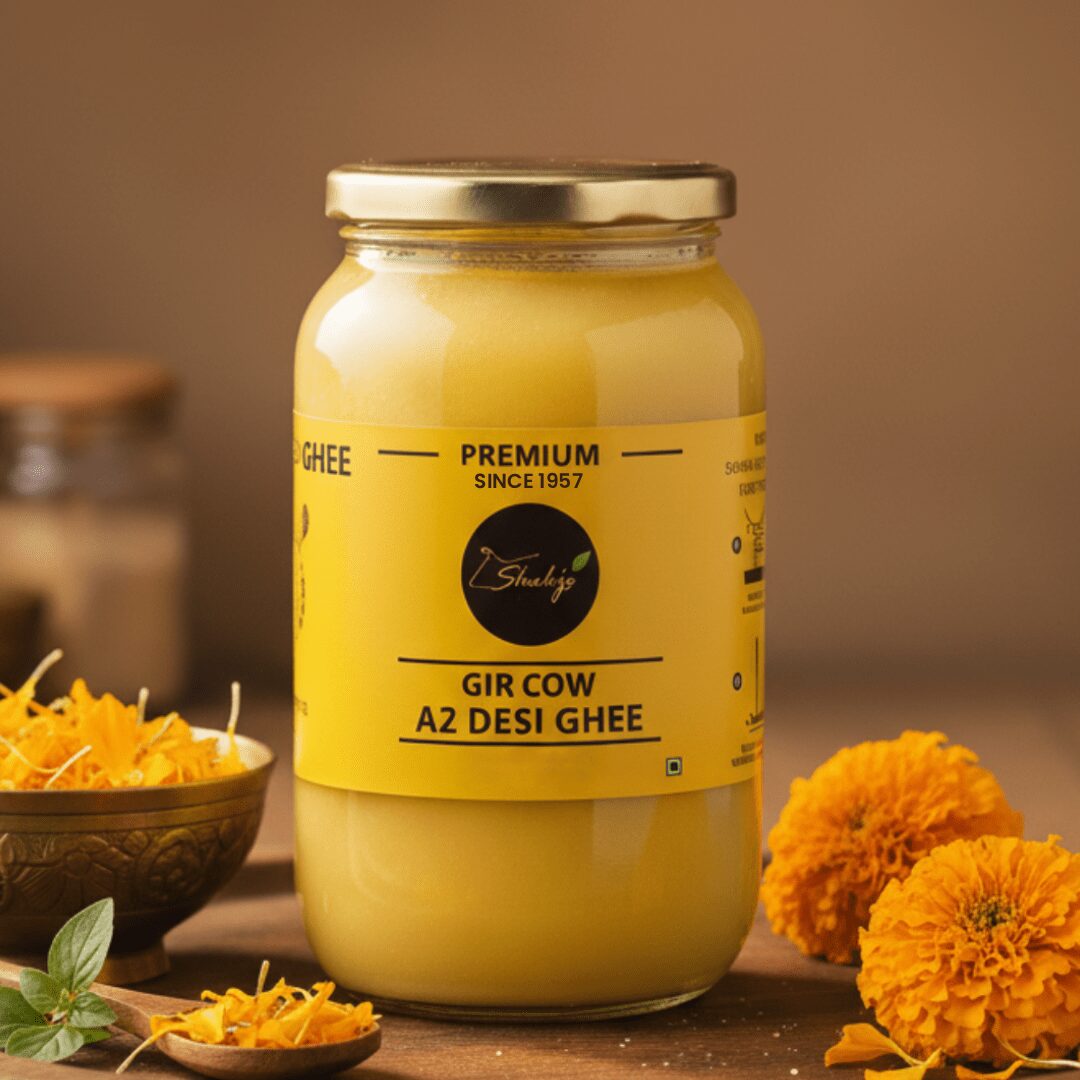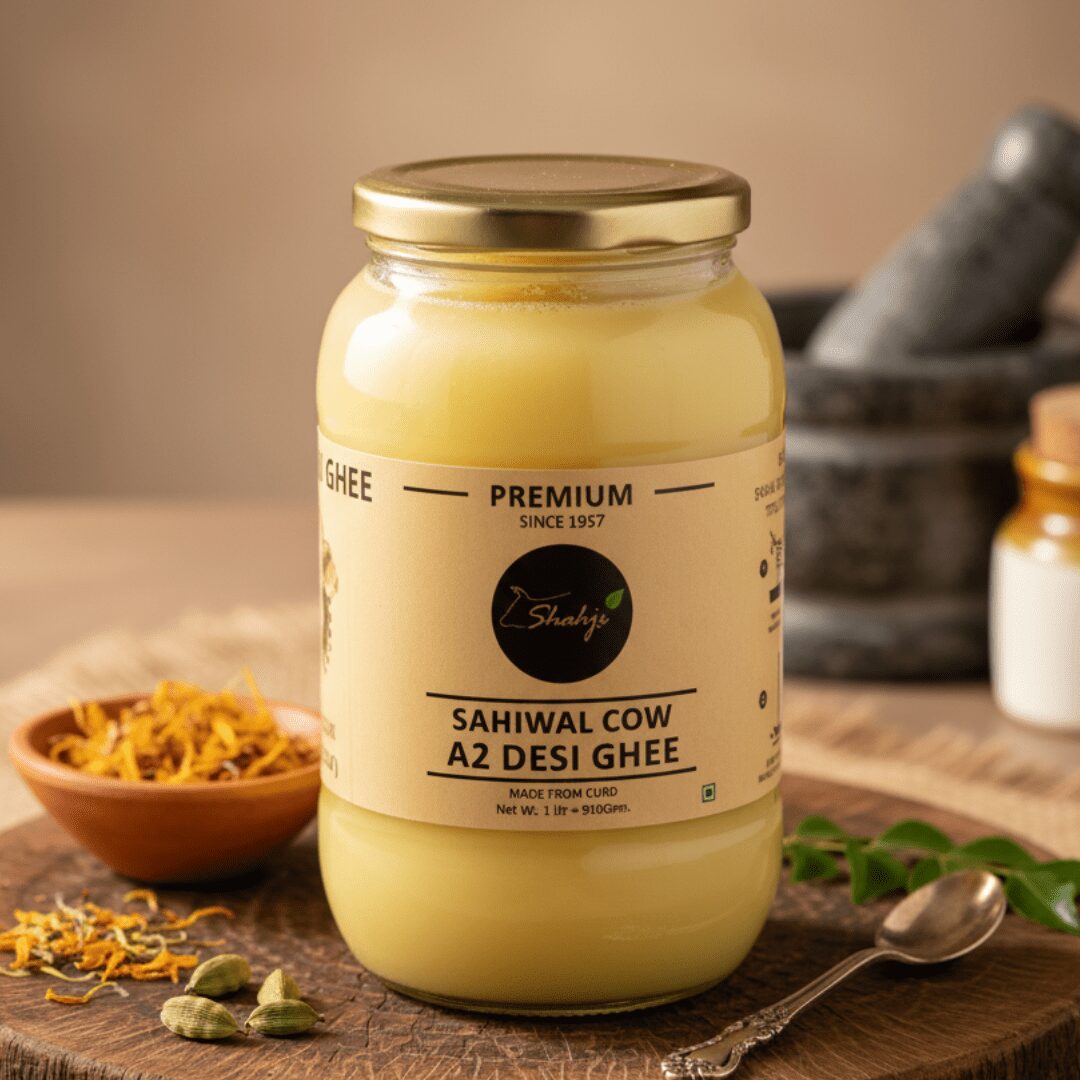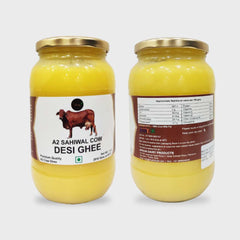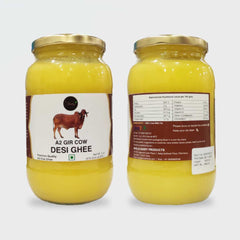Is Ghee Good For Diabetes? – Shahjighee

Diabetes in India has risen to an epidemic proportion. Around 77 million people are estimated to be suffering from diabetes in India, with the numbers set to grow to double in the next 25 years.
A healthy and balanced diet is of utmost importance for a diabetic person. In this regard, there has been quite a debate on the effect of ghee on health. Is ghee good or bad for a diabetes patient?
Is Ghee Good For Diabetics?
Health experts and nutritionists consider pure desi cow ghee as a boon for a diabetic person. Pure cow ghee has many curative and therapeutic properties. Some of the benefits that a diabetic person can get from consuming cow ghee are discussed below.
Ghee Benefits for Diabetic People
1. Cow Ghee has Low Carbohydrate
A person suffering from diabetes is advised to consume food low in carbohydrates. Since ghee has low carbs, it is a suitable addition to the daily diet.
2. Cow Ghee Improves Digestion

A high level of blood sugar in the body affects bowel movements and digestion. Desi cow ghee is rich in butyric acid that is beneficial for the digestive tract. Ghee helps in improving and preventing gastrointestinal disorders. It also helps to improve the functioning of pancreatic glands that secrete insulin in our bodies.
3. Ghee Boosts Immunity and Metabolism

High blood sugar weakens the immunity of the body. People suffering from diabetes can face eyesight problems, liver disorders, skin issues, and digestive problems. Ghee is a superfood loaded with nutrients, minerals, and vitamins.
It contains fat-soluble vitamins A, D, E, K, and B12. it also is a rich source of omega-3 fatty acid and butyric acid. All of these benefits eyes, skin, and hair, enhance heart and bone health and reduce free radicals.
A2 Gir Cow Ghee
1 LTR
Best Price: ₹2125 with Coupons

A2 Gir Cow Ghee 2 Litre Combo Pack
Best Price: ₹4125 with Coupons
A2 Sahiwal Cow Ghee
1 LTR
Best Price: ₹1619 with Coupons

4. Ghee Helps in Insulin Secretion

Insulin is a hormone that is needed to control sugar levels in the blood. Ghee improves the functioning of GLP-1 (an essential gut hormone) that stimulates the secretion of insulin in our bodies.
5. Cow Ghee Reduces Oxidative Stress

Oxidative stress can cause many complications in a diabetic patient including insulin resistance. Cow ghee is a rich source of antioxidants. It helps in reducing damage by free radicals in the body, thereby also helping to decrease oxidative stress.
6. Decreases the Impact of Food with High Glycemic Index
Many carbs-rich food items like rice, dosa, parathas, and idly have a high glycemic index. These can cause an increase in blood sugar levels. Ghee brings the glycemic index down. Adding ghee to these dishes lowers the negative impact.
Also Read:
- What Is Bilona Ghee And Its Benefits?
- Best Ghee Home Remedies that Saves Your Life
- Buffalo ghee vs Cow ghee
7. Weight Management for Diabetics

Keeping weight under check is crucial for people with diabetes. Cow ghee has DHA (omega 3) and CLA (omega 6) that assist in managing weight. These fatty acids reduce excess body fat and increase lean body mass. However, you should avoid buffalo ghee since that helps in weight gain.
8. Enhances Heart Health

Diabetics have a high risk of developing heart problems. The linolenic acid present in ghee helps to fight cardiovascular diseases. Hence, ghee is also useful in enhancing heart health.
How Much Cow Ghee Should a Diabetic Eat?
It is necessary to note that we are talking about cow ghee consumption for diabetics. Unchecked ghee consumption can become harmful. Therefore, a diabetic must eat an optimum amount of cow ghee daily. Some key considerations while eating ghee include:
- Eat only high-quality cow ghee.
- Use ghee in moderation. A diabetic should not eat more than 1-2 teaspoons of ghee daily.
- If possible, get a daily meal plan from a certified nutritionist for a well-balanced diet.
- Moderation is the key factor for a diabetic person to consume ghee. Do not take more than 1-2 teaspoons of ghee daily. You can add this to rice, dal, or khichdi.
A2 Gir Cow Ghee
1 LTR
Best Price: ₹2125 with Coupons

A2 Gir Cow Ghee 2 Litre Combo Pack
Best Price: ₹4125 with Coupons
A2 Sahiwal Cow Ghee
1 LTR
Best Price: ₹1619 with Coupons

Conclusion
Eating pure desi cow ghee is beneficial for a diabetic person. It helps in digestion, boosts immunity, reduces free radicals, and is low on carbohydrates. It also improves heart and bone health and lowers the glycemic index of food. All in all, cow ghee is a boon for people with diabetes.
However, some caution needs to be followed in terms of the quantity of ghee consumed every day. The ghee should also be from a trusted source that makes authentic cow ghee.
Shahji Ghee makes cow ghee from milk sourced from cows that are fed on nutrient-rich grass. It churns out the butter using the traditional bilona method to maintain the authenticity and health benefits of the ghee.
Frequently Asked Questions (FAQs)
What is diabetes?
Diabetes is a disease that occurs when your blood glucose, also called blood sugar, is too high.
Does ghee increase blood sugar?
Ghee has a low glycemic index (GI) of 0, which means it doesn\’t raise insulin as much as foods with a high GI, like white bread and white rice. Ghee is a healthy fat that helps improve metabolism and balance high blood sugar. It contains fatty acids, monounsaturated omega 3s, and polyunsaturated fats (PUFA). A moderate amount of ghee is recommended for diabetics because it slows down the release of glucose into the blood.
Is ghee better for diabetics than oil?
Oils, ghee(fats), and meats do not have a glycemic index (GI). This is because they do not contain any carbohydrates and are not likely to affect blood glucose like carbohydrates do. In general, low GI foods increase glucose slowly in your body. Foods with a high GI increase blood glucose quickly. If you have diabetes, high GI foods can make it harder to control diabetes.
Who should avoid ghee?
Ghee should be avoided by the:
- People with high BMI
- People with dyslipidemia
- People with fatty liver
- People with cardiovascular diseases
- People who have undergone cholecystectomy (gall bladder removal surgery):
- Obese people
- People with heart conditions
- People with kidney issues
- People with stomach-related issues
- People who feel bloated
- People suffering from acidity and indigestion
- People with milk allergies
How much ghee is good for a diabetic person?
For diabetic people, the daily recommended intake of ghee is 1-2 tablespoons
















